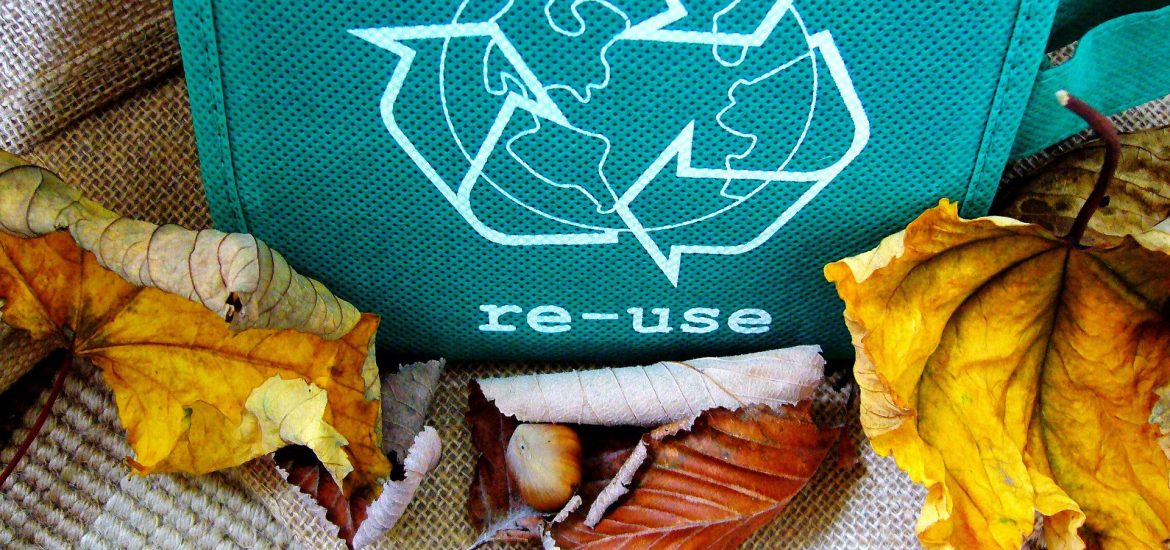As a student intern for Syracuse University’s Sustainability Division, Elizabeth Hayes learned how hard it is for people to change their everyday habits to be more sustainable, even if it’s just switching to chemical-free cleaning supplies.
Hayes, a senior dual geography and citizenship and civic engagement major, is one of three interns for the Sustainability Division who research and take on sustainability-related projects around campus. This year, they persuaded the university agreed to try out chemical-free products, but the cleaning company was not on board. She hopes the next initiative — a bike share program coming fall 2016 in partnership with SU’s Student Association — will be more successful.
“Although not every project is a success, working as an intern definitely opened my eyes to what kinds of things students could do to change the university and have it become more sustainable,” Hayes said.
Since 2007, Syracuse has expanded its efforts to promote student involvement in sustainability, both in and out of the classroom. The university offers majors and minors related to sustainability and energy conservation across multiple schools on campus, and there are nine sustainability-related groups on campus.
“Honestly, I don’t think you could really estimate the number of students involved in sustainability on campus,” Syracuse University Sustainability Coordinator Melissa Cadwell said. “There are so many sustainability-related classes and sustainability is so broad in its definition that there are some groups that you wouldn’t think would be part of it, but they really are.”
Cadwell, who has worked at Syracuse since 1987, said the university began working towards energy conservation in the 1970s, but did not officially start any sustainability initiatives until former Chancellor Nancy Cantor signed the American College & University Presidents Climate Commitment in 2007. In this agreement, universities pledged to reduce greenhouse gas emissions and to become carbon neutral within 20 years. Cadwell said this agreement helped make climate change a more mainstream issue on campus because they had to create an official plan for sustainability.
One of the sustainability-related groups at Syracuse is Students of Sustainability, run by Maria Dombrov, a junior biology major with a focus on environmental science. As president, Dombrov helped revamp the organization when it was beginning to falter a few years ago, and now they have about 15 consistent members who come from different majors across campus.
“It’s definitely a small percentage on campus who have an adequate amount of education to understand certain recycling measures and certain effects climate change has on our environment,” Dombrov said. “It’s such a big school, but hopefully in the long run, we can get more people to think about how they themselves are affecting climate change.”
The most recent event promoting sustainability awareness was EarthFest, which took place on April 24 in Thornden Park and was coordinated by both the Sustainability Division and Students of Sustainability. EarthFest, which included music, food and information tables, was designed to educate students and local residents about current sustainability projects. Although they had a turnout of about one thousand people throughout the day, Students of Sustainability still wants to grow a bigger and more permanent presence on campus.
A new organization created this year that has yet to get up and running is Project Science, Creativity and Innovation, started by freshman information management and technology major Jez Sabaduquia. Project S.C.I. is an after-school program where the team will go to teach elementary school children about recycling and engineering as the students create airplanes from plastic bottles. The bottles will come from the SU residence halls, where each hall will earn points for recycling their bottles and cans. Since Project S.C.I. is just starting out, the staff is only three people but they hope to pilot the program in Syracuse elementary schools next year.
Sabaduquia and his two team members pitched their idea at the Clinton Global Initiative University Conference in April at the University of California, Berkeley, where they met other like-minded students and are excited to bring what they’ve learned back to campus.
“I hope more Syracuse students will give a shit about sustainability because it is for the benefit of everyone,” Sabaduquia said, “but I’m very hopeful because Syracuse supports you so much in your endeavors — I even got a personal letter from the chancellor wishing us good luck at the conference — and it really motivates you to know you’re not alone in this. You have to be the one to seek out their help though, and I hope more people will realize that, especially when it comes to sustainability projects.”

